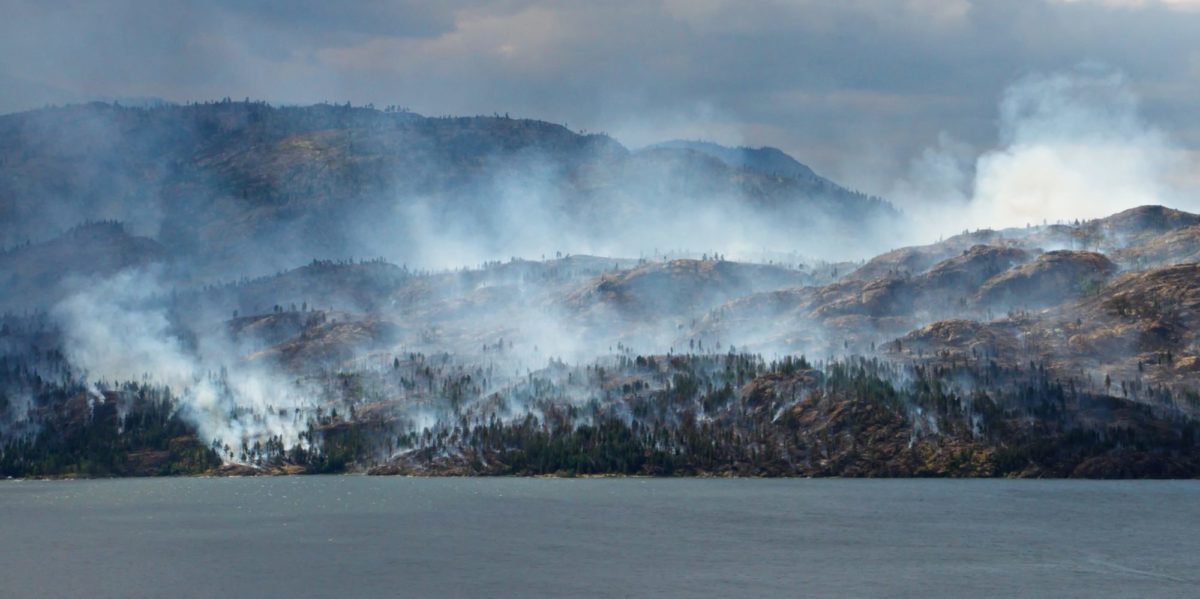Between Japan experiencing its worst heatwave in 150 years, the United Kingdom surpassing 40 degrees Celcius for the first time ever, and the United States reporting nine individual billion-dollar weather and climate events in the first six months of 2022, one thing is clear: not only is this not normal, but we won’t survive it becoming the new normal.
With the frequency of deadly heat events growing across the globe, Dr. Melissa Lem says it’s almost impossible to ignore the effects when the proof is already in our faces.
A clinic assistant professor in the Faculty of Medicine at the University of British Columbia, Lem also serves as the President-Elect for the Canadian Association of Physicians for the Environment (CAPE).
Lem first became a member of CAPE when she was still in medical school. Since then, she has worked on policy and advocacy campaigns around the climate crisis, including wildfires, active transportation, and the need to connect to nature for health.
“I grew up always concerned about the environment, and my family would call me a tree hugger,” she said in an interview with rabble.ca.
Lem says the majority of our health factors are “outside many peoples’ control,” pointing to infrastructure as the main culprit.
“If, as physicians [and] healthcare workers, we want to make sure that our patients have the best health status, we have to start looking beyond our offices and our hospitals,” she explained. “We have to start looking at social determinants of health and ecological determinants of health, like making sure we have clean air to breathe, healthy temperatures, and have green space and trees to shade us and cool our cities to keep us healthy.”
Ninety-eight per cent of 2021 heat dome deaths in Lytton occured indoors: coroner
The ongoing wildfires in the community of Lytton are especially devastating after a 2021 heat wave saw temperatures reach a record 49.6 degrees Celsius and hundreds of people die from heat-related illnesses.
It was during that 2021 extreme heat event that a B.C. doctor diagnosed a woman in her 70s as suffering from effects of climate change.
“Her diagnosis, of course, is not climate change,” Merritt explained in an interview with rabble.ca last fall. “But, the underlying factors affecting the diagnosis, certainly I did decide to document that in the charge as climate change.”
On June 7, the B.C. Coroners Service released a report documenting the health ramifications of last year’s heat dome in the province.
The report, Extreme Heat and Human Mortality: A Review of Heat-Related Deaths in B.C. in Summer 2021, concluded that more than 800 people died during the week-long extreme heat event, with 619 — or more than three in four deaths — identified as “heat-related.”
The most harrowing finding was that 98 per cent of those deaths, or all but 16 of them, occurred indoors.
Heat-related deaths were also higher among people with chronic diseases like diabetes, epilepsy, asthma, COPD, schizophrenia, and depression. Additionally, more than six out of every ten people who died during the unprecedented extreme heat event had been seen by a medical professional less than one month before their deaths.
According to the report, 67 per cent of those who died were 70 or older. More than half of the total deaths were among people who lived alone.
Lem noted that both heat and smoke are the primary factors currently impacting patients on the west coast of B.C. Part of her work is making sure elderly patients, those with chronic disease, and also parents of young kids know what to do to stay safe in extreme heat events. She also does medication reviews.
But when it comes to solutions beyond individual-level interventions, Lem believes governments at all levels should be putting policies in place to protect people from health issues during extreme weather events.
She says governments should enact legislation to make sure heat pumps are used in homes, both to heat and cool them. Additionally, Lem is advocating for more street trees and green spaces to help prevent the kinds of “heat islands” seen during the 2021 heat dome.
The intersection between the climate crisis and health inequities
While Lem hasn’t had specific conversations with her patients about health effects of extreme weather events, she has seen growing levels of eco-anxiety and climate grief manifest through her patients.
“That really illustrated to me that our own environments can be part of what’s causing anxiety and depression,” she said, noting that it was smoke and heat — rather than COVID-19 — that pushed her patients’ mental health over the edge.
And as young people struggle with older generations’ culpability in the climate crisis, she pointed out that the majority of youth are just as frustrated by government complacency.
With goals of a 60 per cent reduction in carbon emissions by 2030 on the road to net zero by 2050, Lem says a societal approach is necessary to both reach those targets and ensure vulnerable communities aren’t left to their own devices to survive.
“One of the huge injustices of climate change is that it disproportionately affects people whose health status is already worse,” she explained. “In many cases, these are people who have done very little to actually cause climate change.”
Ultimately, Lem wants people to better understand the connection between climate change and health inequities that put people at risk, and realize that fighting for one is fighting for both.
Listen to Wentzell’s full interview with Lem here.
This article is part of rabble’s series “The Boiling Point.” The Boiling Point examines the ways increasingly high temperatures due to the climate crisis are affecting our summers in Canada on a social, institutional, and ecological level. The series also explains how Canadians can take action against climate change and make real differences in their communities. Follow more stories here.




